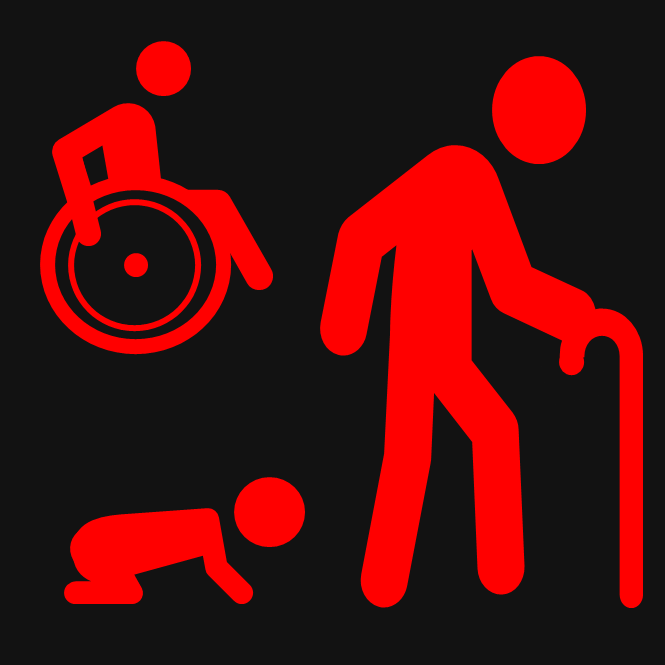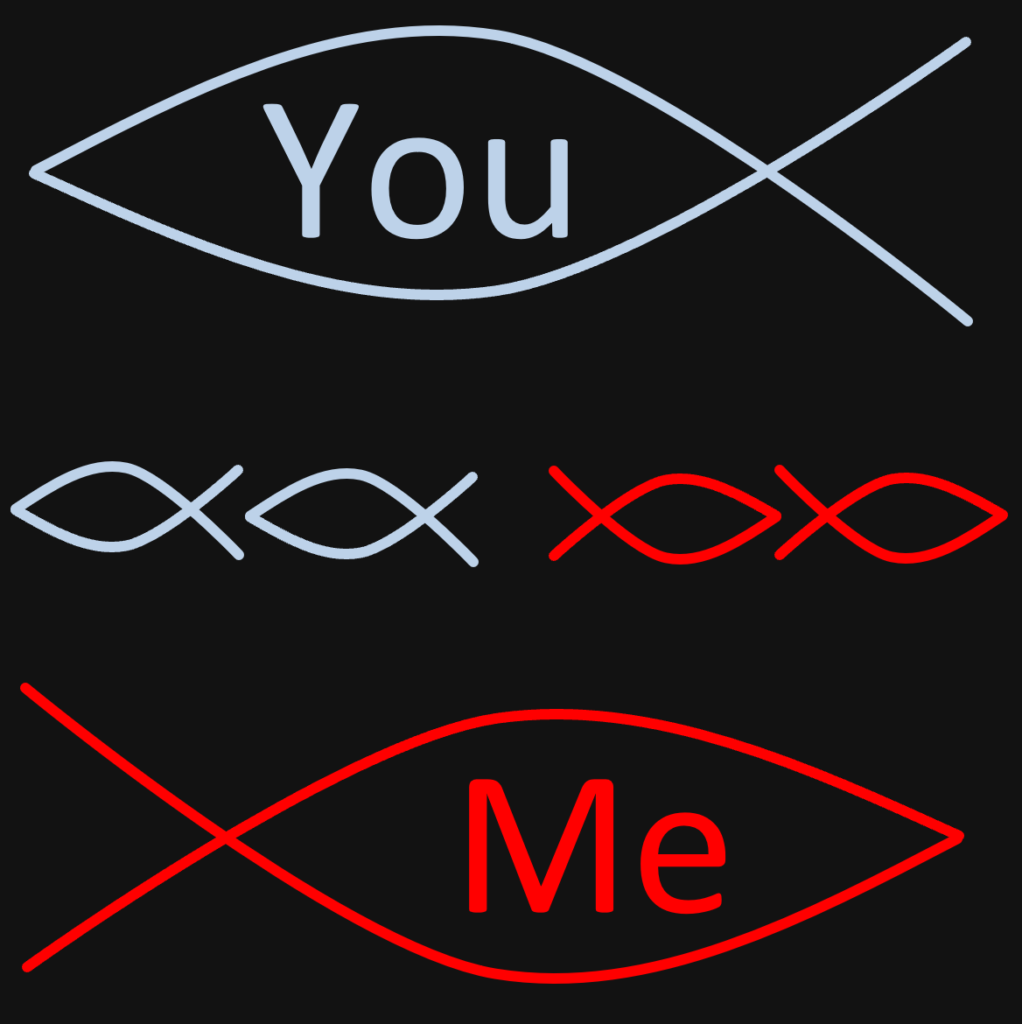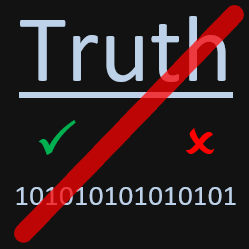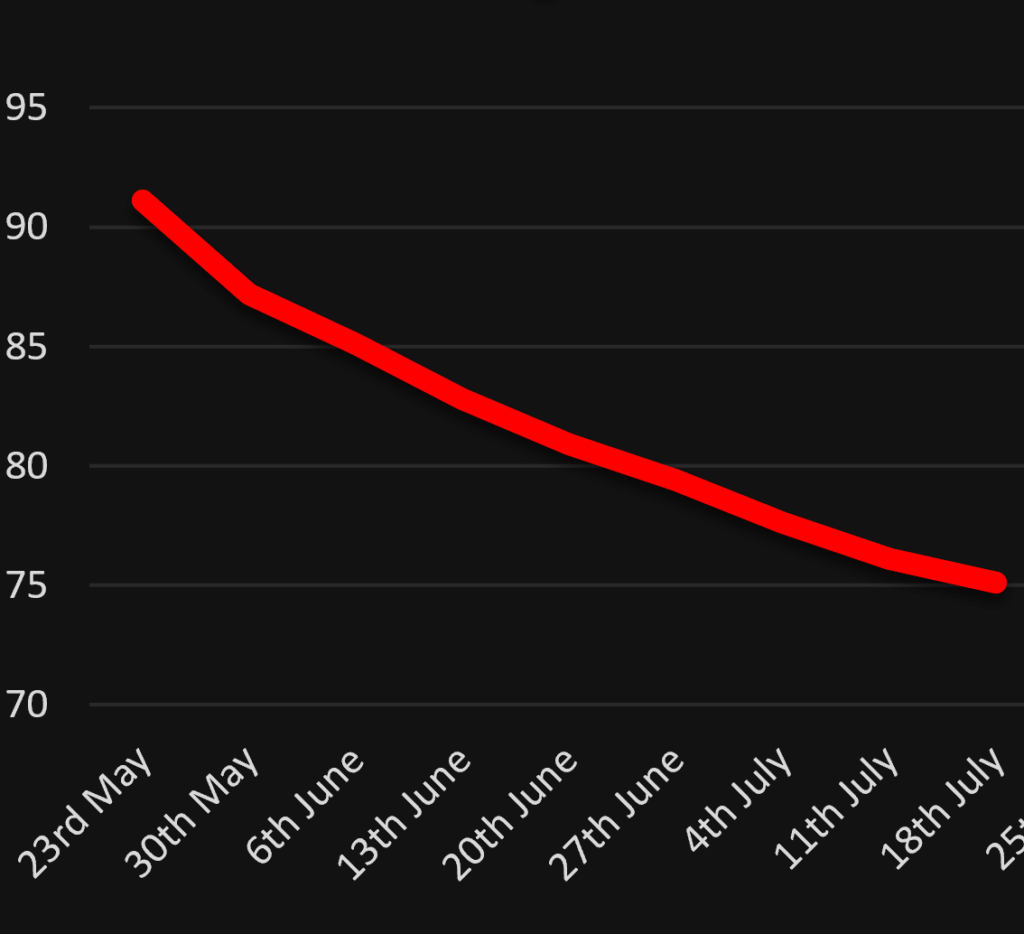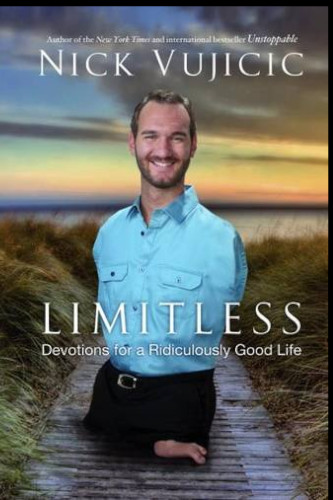Seven-point checklist.
Mental Health & Disability. (Sept 23)

Caution, big issue. 2000 words based on feedback from other people and churches.
I can only write on behalf of my own experience and what I’m told. We are all different! Disability and mental health are diverse, visible and invisible.
Introduction.
I recently heard someone encourage others to share mental health concerns with their church family. Should people keep quiet about their mental health and disabilities in church? What I want to say in reply, I can’t. Sadly, I don’t think it’s always safe to be open and then misunderstood.
Equality is stronger in scripture than it is in the Equality Act 2010 (EA 2010) with its 9 protected characteristics.
In a synagogue sermon (Luke 4: 14-28) Jesus read from Isaiah 61. The Gospel for the poor, trapped and blind. He said they were being “fulfilled” by him, on that day. (v20) Is the Gospel being fulfilled by us? Jesus never stopped including those with disabilities.
Sadly, experience and feedback does not confirm that this is evident in every church. Should this surprise us? We are all imperfect.
Post accident I am disabled as described by the EA 2010 section 6 definition. I have invisible disabilities. Traumatic Brain Injury (TBI) has left me with mental health problems too.
I have previously recorded my personal thanks to churches I have attended. Some exceptional people have blessed me. Their love outstanding. This stands out from other personal experiences and much of the virtual feedback I receive from others.
Professional organizations are often better than some church institutions, at making, “reasonable adjustments.” Many value and include sufferers and promote their involvement. Church should be better. It’s both an institutional organisation, and a spiritual living organism.
We are still the same people. A point made very well by SAMEYOU. An excellent secular organisation, established by a famous actress.
My story on the SameYou website is here.
Focussing on spiritual sameness, strengthens unity. Focusing on differences, distributes division and despair. They’re disabled and imperfect and I’m ‘normal.’ Before God, at the cross, there’s equality.
Christ was deliberately inclusive and chose a diverse range of disciples. He selected characters very deliberately in his parables. His lifestyle and actions made the equality of all, demonstrably clear.
Church institutions often get formed with typical groups of like minded people. Inward looking approaches develop subconsciously and church can drift away from the Gospel priorities proclaimed by Christ. Do we want ‘them’ to be like us, or all to become Christlike?
Objective 1: Church learns it’s easy and necessary to serve those with disabilities, and mental health challenges. Objective 2: Church learns the value of recognising, enabling and benefitting from the abilities of those with disabilities and difference. Their window of experience may provide greater awareness. An improved view and delivery of the Gospel.
This scene from the Chosen has become epic internationally.
This creative video of a conversation with Jesus, does not come from scripture directly, but powerfully meets my personal theological checksum for disability. Everyone can add value to church, even without “full” capacity.
“Three times I pleaded with the Lord to take it away from me. But he said to me, My grace is sufficient for you, for my power is made perfect in weakness. Therefore, I will boast all the more gladly about my weaknesses, so that Christ’s power may rest on me.” 2 Cor 12:8-9 (NIV UK).
I’ve had feedback from people who have left a church institution. Hurt by the way that they, or their biological family, have been treated. They can attend church, but not with another family member. I know of people who had significant church roles who have been disenfranchised. EA 2010 protected characteristics ignored.
Have we asked people why they are leaving? Have they tried and failed to tell us? Do we care? We may need to unlearn, to learn. Don’t just focus on the 99 and forget about the one that got away. (Luke 15:1-7)
It’s all very well saying that “church” is the family of God and ridicule Christians who no long feel they fit in or belong. Sadly, disability and mental health are an easy target for ridicule, jokes, and self-justification. Discrimination too.
I’m used to it, so it must no longer hurt. Thanks. Great fun for you. Hope you get a good laugh from your amusing analogies and tales.
If we believe what we proclaim, we need to do something differently. The downward trend should not be ignored. Or dealt with by blaming those who can’t connect with the reality of Christ though ‘our’ offer. The offer is from God, not us!
The problem is us, not the love of God.
Lord Jesus Christ, Son of God,
have mercy on me, a sinner.
(The Jesus Prayer)
Why do they leave? This question ought to be, “Why should they stay?” Our dismissive approach can be justified because it’s considered unbiblical to leave church. A church with an unbiblical approach to the suffering? Servant leadership? Humility? What is the Value Added by church? Any quantifiable VA measures?
Still, it must be their fault, the majority remain with us. We’re getting good offerings. We’ll be OK. They just don’t understand scripture, like we do. They lack our faithfulness. Theodicy tension?
Sadly, the marketplace remains in much of the temple. The new temple? I want to be a peace lover. Jesus was a peacemaker. This led him into conflict with many religious leaders he encountered. Would he say anything different today?
Paradoxically, narcissism and religious self-righteousness, blinds many. Their interpterion, translation, application, and focus on small parts of scripture, can distort the big picture. Statements are often followed by, “God has told me.” So, if you argue with me, you argue with God.
Bible experts. Often has-been drips under pressure. Nobody is perfect, including me!
Leadership is more than being an engaging speaker and presenter. Not every leader leads from the front of the room. Not everyone at the front is a leader.
Most noise usually comes from the shallow end of the swimming pool.
The Bible Course, by the Bible Society, provides an excellent big picture, of the Bible. A zoomed out view provides valuable context to detail and wholistic revelation in itself.
There is too much digital thinking in an analogue world. Is a half-truth still truth? What is truth? This is the only record of a question Jesus did not answer.
Actions speak louder than words.

Seven Point Equality Church Checklist
Equality and questioning, Training and awareness, Compassion, Healing, Numbers, Priorities, Context and labels.
1. Empathy and questioning.
Do we use phrases like, “Perhaps God is teaching you to be patient. Perhaps God is teaching you something important. Perhaps you just need more faith. Perhaps you are being punished…” Perhaps. But really, is that the best we can do?
But it must be their fault! “His disciples asked him, Rabbi, who sinned, this man or his parents, that he was born blind? Neither this man nor his parents sinned, said Jesus, but this happened so that the work of God might be displayed in his life.” John 9:2-3 (NIVUK)
Much of John 9 relates to disability. It challenges the attitude and questions of the superior and able.
“Jesus said, “For judgment I have come into this world, so that the blind will see and those who see will become blind.” Some Pharisees who were with him heard him say this and asked, “What? Are we blind too?” Jesus said, “If you were blind, you would not be guilty of sin; but now that you claim you can see, your guilt remains.” John 9:39-41 (NIV UK)
Empathetic and open questions…
When you meet someone different or with health challenges, do you ask questions about what they can’t do, or what they can do? What do they like doing? The problems may lie with the attitude of the questioner.
Better questions…?
What’s that like for you? Would you like to talk more about that?
(Questions without adding an answer… eg; Does that make you.. sad, angry, frustrated…?)
Is there anybody in church you would like to talk to? Who?
(Similar experiences/challenges, theological applications…)
What would help at this time?
(“Reasonable adjustments” such as access to toilet, warning of strobe lighting & noise, unnecessary simultaneous stimuli from multiple people, seats on end of row to help you get out if needed, transport and virtual attendance possibilities…)
Is there anything you’d like us to pray for that would help right now?
Can we get anything for you?
(Food, Medication, Christian resources, Contacts for professional help…)
Sympathy and empathy are both used in the same sentence in some bible translations. Both have value together but…
In my experience sympathy can be disconnecting and judgmental. Empathy is connecting and relational.
Primary disability, is the actual restricting impairment. Physical or mental. Subsequent disability, is the restriction added by the attitude, approach and expectations of those asking the questions and those looking on to form judgments.
Listen to understand. Not just reply. People often don’t remember, what you say or do. Just how you made them feel. Over 70% of communication is non-verbal.

2. Training and awareness. First Aid.
Do we make the Gospel accessible to all in both word and deed. Do people know where to get help?
Does church have a label signposting accredited First Aiders for immediate physical need? (DR ABC) There are many in other public places including the marketplace.
Do we have any Mental Health First Aiders trained and signposted? Anyone who can help their community and offer sensitive appropriate support? (ALGEE) Support beyond the selfish, “It wouldn’t happen to me, I’d have acted differently” mentality.
“Health is a state of complete physical, mental and social well-being and not merely the absence of disease or infirmity.” (WHO)
Spiritual First Aiders?
My first thoughts. (ST XYZ)
More on spiritual first aid…

3. Compassion.
“Are you OK?” can be a problem question for two diverse reasons. A question often asked without stopping. Answer unwanted. No desire for dialogue. Don’t want to know. Stick with “Hello.” Some sufferers have started to give a number in reply!!! I went for percentages.
Or at the other end of the scale, if you do want an answer, be aware! The sufferer may already have been required to answer this question. This makes the sufferer painfully, repeatedly, re-engage with their problems. They may just want to escape and get back to a ‘normal’ Christian context, removed from endless self-talk. A need to enjoy time spent with others. Being well again. Talk as before. It’s how I felt after months in hospital.
The right balance? Compassion, empathy, availability, and care.

4. Healing.
It is a medical miracle that I am alive. Even able to walk and talk again. I am truly grateful for the considerable prayer of others!! I’ve seen online prayer groups and displays in school about my healing. Father God, I thank you for your love, experienced through your loving family. Not all have been so blessed.
Do we only talk about those who’ve been fully healed to keep things presentational? Half-truths are fine and won’t hurt the many for whom this does not apply. Really? Let me know if anyone gets healed, so we can demonstrate what a fantastic faithful church we are!
Thanks to God for His healing should be frequent. But not an always public approach. We should give thanks appropriately.
Healing is between God and the sufferer.
“He took the blind man by the hand and led him outside the village.” Mark 8:23 (NIV UK)
Healing can happen in stages.
“Once more Jesus put his hands on the man’s eyes. Then his eyes were opened, his sight was restored, and he saw everything clearly.” Mark 8:25 (NIV UK)
Hide the truth and stop celebrating people if they start getting ill again! Everyone gets healed here! This approach can hurt the many remaining sufferers sitting in the pews if repeatedly told, by implication, that their belief is not good enough.
Others are better. They remain different and flawed as they are.
BBC News: Stop tryng to heal me.
Jesus healed those with honesty, not hype.
“If you can’? said Jesus. Everything is possible for him who believes. Immediately the boy’s father exclaimed, I do believe; help me overcome my unbelief!” Mark 9:23-24 (NIV UK)
Do we over prioritise keeping it positive from the front? Should we show balance and recognise that some are not fully healed?
“For the time will come when people will not put up with sound doctrine. Instead, to suit their own desires, they will gather around them a great number of teachers to say what their itching ears want to hear.” 2 Timothy 4:3 (NIVUK)
We may have “healers” in our church! Is it their job, so we don’t need to get involved? “Healers” are part of Gods delivery service of the gift of healing for others. The power is with God. The disciples had to be reminded of this.
“But Jesus took him by the hand and lifted him to his feet, and he stood up. After Jesus had gone indoors, his disciples asked him privately, Why couldn’t we drive it out? He replied, This kind can come out only by prayer.” Mark 9:27-29 (NIV UK) We need mindful prayer to be faithfully aware.
The spirit of God as a healer may be gifted to some, but we all have responsibility for others. Remember the second of the two greatest commandments! Is God less powerful when the prayer comes from others, including children?
When Paul describes spiritual gifts in 1 Corinthians Chapter 12 he includes, “There are different kinds of working, but the same God works all of them in all men.” 1 Cor 12:6 (NIV UK)
Prayer by all, for all, with the power of God.
“I urge, then, first of all, that requests, prayers, intercession and thanksgiving be made for everyone—” 2 Timothy 2:1 (NIV UK)
Healing and ministry, church and temple. The Greek word, “Soteria” from “soter” is used for salvation. Its root is also used for healing. Salvation from physical illness, as in Mat 9:21 & Luke 8:36 where the verb “sozein” is used.
I have not been fully restored. I am being fully re-storied.

5. Numbers.
We don’t want to put new people off, by recognising the faithless sufferers that have not been healed. Disabled or depressed. We can invite people into a version of Christianity that sells. The number of conversions is what counts. Is this misrepresentation of Gospel actually attractive to the 70% considered able and aware? Should it be?
“Woe to you, teachers of the law and Pharisees, you hypocrites! You travel over land and sea to win a single convert, and when he becomes one, you make him twice as much a son of hell as you are.” Matthew 23:15 (NIV UK)
“They” are in the minority, so it’s not a big problem. An estimated 14 million (20%) of people in the UK have disability. Approximately 10 million (72%) of these are invisible. One in four people have mental health issues each year. One in six people of working age have symptoms associated with mental health. 75% of mental health illness starts before the age of 18. (CMO Report 2014) Suicide. In the UK in 2018, 16 people died this way per day. This is 3.4 times the number killed in road accidents in the same year. [2021 statistics are similar]
I have about 300 online visitors most weeks, and I receive disturbing written feedback expressing concern and personal hurt. When do individuals count beyond the prayer of conversion? Giving your life is more than a prayer at the front.
Do we want visible growth? More people, buildings, money and status…? Without Christ’s Gospel, growth is just a painful swelling caused by infection, irritation and damage. Spiritual growth may be invisible. Just like disability. Widows ‘mite’ (Luke 21:1-4) tell you that the kingdom of God is like a tiny mustard seed. (Mark 4:30-33)
Seven often represents completeness in Scripture. From Genesis 1 and beyond. Joshua circling city, Ruth’s offspring, Elijah working with/for God bringing rain after fire…
The Gospel of the church is incomplete without those with disability and mental health being served and serving. Even the able are spiritually disabled without Christ.

6. Priorities.
Disability, mental health, and equality may be proclaimed priorities and listed in public documents, and on websites. We’ll see slopes, signposted support, sensitive seating and warnings for loud sound and strobe lighting. Second commandment, scripturally secure, safe sermons. All the simple stuff. Super!!!
We’ll have an inclusive disability and mental health evaluation schedule. Vision and success criteria. We’ll be aware of our strengths and areas for development. Evidence of engagement at all levels will exist in the regular meeting minutes. We’ll have a key leadership officer and improvement plan. Staff training with in-date accreditation will be on file. Workshops and seminars will be available to all. External moderation and review records will link to improvement priorities in our plan.
If not, is personal wellbeing and safeguarding inadequate because leadership and management are inadequate? (cf. OFSTED).
Any “qualifying complaints” from feedback? Are our standards and expectations of compassion and safeguarding lower than the secular, despite being stronger in scripture?
Introspective organisations lose sight of the big picture. Outsiders and inspectors often see the blind spots we can’t see ourselves.
The early communities of church, in various locations, received authoritive correctional directional letters, with encouragement and affermation from Paul. They remain helpful today.
Are we conscious of our own areas for development? Attitudes develop subconsciously over time if unchecked.
Do you want to help, to make them feel better, or you?
Can you serve people with disability without people with disability serving?
An accurate perspective of the world revolutionises our engagement with, and understanding of, Gospel priorities.

7. Context and labels.
Does our church value people of difference with faithful relationship journeyed beyond our own institution. Does our church value people who have labels that might not seem positive to present? Does our discipleship focus on potential and ability, or disability? What you can do, or what you can’t? They can’t do it now. They’re not one of Us.
Them? They are church observers, not church participants. They are here to consume and applaud the attractive professional presentational elite. They’ll enjoy watching. We’ll cheerily remind them that their spiritual gifts should wait. Once dead, they’ll get a new body, heart, and mind if they listen, and stay in the background. How heavenly.
Leaving life often feels the best option in many contexts. I’ve been told this by many with mental health challenges. I’ve known it myself. Better for everyone, if I’m no longer their problem. What if I run out of money and can’t even contribute financially? Suicide feels like one of few things you have control over. BUT we all have reasons to live!
I hold onto this. Christ loved all and chose to spend much of his time with the sufferer rather than the elite.
Teams with diversity have strength. Do we judge potential through the window of our own experience? Them and Us.
I hear the statement, “We don’t have people with disabilities in our church. No adjustments needed.” This tells you a lot about the ethos and attitude of the speaker. Both are hard to change. It’s far easier to teach skills than change personalities. I knew this when appointing headteachers. The statement should have been, “Why don’t we have people with disabilities and mental health challenges when they are 20-30% of our community?”
What “Reasonable Adjustment” do we make?
(Equality Act 2010)
Applying the musts (Law) and shoulds (Guidance).
The Growth Trust:
Equality Act -Making Church Buildings fully accessible.
Churches for all:
Enabling churches where disabled people belong.
Does the wider church family have a breadth we might gain from? Can we learn from the secular and EA 2010?

Conclusion.
Christianity has at its heart the belief that nobody should be written off. We should not use our labels and ability groups to keep anybody at the back of the class. Should there be a front form for the faithful?
We are all in a mixed family group accessing the huge power of God from our weaknesses. Anyone who thinks they are perfect, is either Jesus or wrong.
We need to welcome all, like Jesus. Do our religious leaders keep things within ‘their’ temple and the networks they control? The temple became a marketplace that Jesus disrupted. (Mark 11:15-18) A place of prayer used to promote self, institution, and status. Not to worship God.
We should welcome all and go out to the marketplace and not expect the marketplace to come to us. Or become a marketplace ourselves. Making them like us, should not be our goal. We should all strive to be more Christlike together. Irrespective of starting point. Developmental relationship and ongoing change are part of discipleship.
We have a ubiquitous father and family. Inside and outside of our building and local community. Welcome and exits. Are we inclusive, or exclusive?
Speaking out, raises the risk of being hurt and misunderstood. People have been removed. Natural narcissist -the Cuckoo.
People may need to make a move themselves. If they try to keep on going, stay on track, they keep on hitting the same buffers. Dangerously damaging for all.
The focus must be Fear of the Lord. The way of the world is the saving of self. With God’s help we are called to live for others and stick our necks out, to tackle injustice and distortions.
“For whoever wants to save his life will lose it, but whoever loses his life for me and for the gospel will save it.” Mark 8:35 (NIV UK)
I have much to learn. Don’t we all?
Joni & Friends Podcasts…
Ways to become a more disability friendly church
How Including People with Disability Changes Church Culture

I’ve had permission to share the first two sentences of the first feedback…
“Oh YES! Every word 100% chimed with me! Some of it so much, I laughed in sadness.”
Much more was bravely and kindly written. Thank you! This post has been edited a tad since that first comment.




